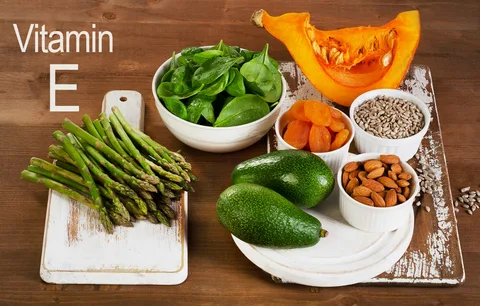Vitamin E is a crucial nutrient with powerful antioxidant properties that play a vital role in supporting overall health. While supplements are available, incorporating Vitamin E into your diet through natural sources ensures you receive additional benefits from other nutrients and antioxidants present in these foods. This guide explores various natural sources of Vitamin E, its health benefits, recommended daily intake, and common questions associated with its consumption.
Understanding Vitamin E
What is Vitamin E?
Vitamin E refers to a group of fat-soluble compounds known for their antioxidant properties. The most biologically active form is alpha-tocopherol, which is found in various foods and supplements.
Why is Vitamin E important for health?
Vitamin E acts primarily as an antioxidant, protecting cells from damage caused by free radicals. It also supports immune function, skin health, and may have a role in preventing chronic diseases.
What are the recommended daily intake levels of Vitamin E?
The recommended daily allowance (RDA) for Vitamin E is 15 mg (22.4 IU) for adults. This amount can generally be obtained through a balanced diet rich in nuts, seeds, and oils.
Natural Sources of Vitamin E
Which foods are high in Vitamin E?
Excellent sources of Vitamin E include:
- Nuts and Seeds: Almonds, sunflower seeds, hazelnuts, and peanuts.
- Vegetable Oils: Sunflower oil, safflower oil, and wheat germ oil.
- Green Leafy Vegetables: Spinach, Swiss chard, and kale.
- Fortified Foods: Some cereals and other fortified products contain added Vitamin E.
How can I incorporate more Vitamin E into my diet naturally?
You can boost your Vitamin E intake by:
- Snacking on Nuts: Enjoy a handful of almonds or sunflower seeds as a snack.
- Using Healthy Oils: Cook with sunflower or safflower oil.
- Adding Greens to Meals: Include spinach or kale in salads, smoothies, or stir-fries.
Health Benefits of Vitamin E
What are the benefits of Vitamin E for skin health?
Vitamin E helps maintain skin health by protecting it from oxidative damage, promoting healing, and supporting moisture retention.
How does Vitamin E benefit heart health?
Vitamin E may help prevent the oxidation of LDL cholesterol, reducing the risk of heart disease.
Does Vitamin E support immune function?
Yes, Vitamin E plays a role in supporting immune function by protecting immune cells from oxidative stress.
FAQs About Vitamin E
Can Vitamin E supplements replace natural sources?
While supplements can help meet daily requirements, it’s generally best to obtain Vitamin E through a varied diet to benefit from other nutrients and antioxidants present in natural sources.
Are there any risks associated with high Vitamin E intake?
High doses of Vitamin E from supplements can interfere with blood clotting and increase the risk of bleeding. It’s best to stay within recommended intake levels.
Can Vitamin E help with scars or stretch marks?
Vitamin E’s antioxidant properties may aid in reducing the appearance of scars and stretch marks by supporting skin repair and hydration.
Conclusion
Boosting your Vitamin E intake naturally involves incorporating a variety of foods into your diet that are rich in this essential nutrient. By choosing nuts, seeds, oils, and leafy greens, you not only enhance your Vitamin E intake but also benefit from a range of other nutrients that support overall health.
- Downturned Smile Treatment Near Redhill, Surrey - May 5, 2025
- Jalupro Super Hydro Skin Booster Treatments Near Copthorne, Surrey - May 4, 2025
- Dermal Fillers Near Bagshot, Surrey - May 4, 2025



